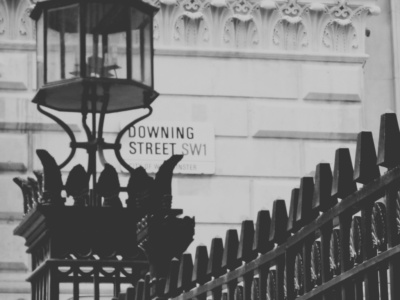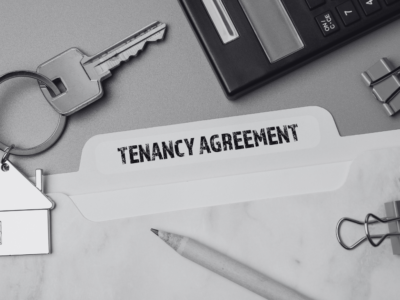It all began during the final months of Theresa May’s premiership – a proposal to scrap Section 21 of the Housing Act 1988, which has given landlords the right to seek repossession through no-fault evictions.
The proposed scrappage was met with criticism from organisations representing the interests of landlords, such as ARLA Propertymark, the National Landlords Association (NLA) and the Residential Landlords Association (RLA), but welcomed warmly by pressure groups arguing for greater rights for tenants, such as Generation Rent.
Following a consultation, the inclusion of the proposed scrappage in the Conservative 2019 election manifesto, and now its inclusion as part of the Queen’s Speech, in the form of a Renters’ Reform Bill, what can we expect to happen?
The second Queen’s Speech of 2019
Some readers may be getting a feeling of déjà vu, at the sound of another Queen’s Speech. The previous Speech, held in October, preceded the general election campaign itself. Held on 19th December, this second Speech was a somewhat more pared-down affair, but its impact on the housing market was still noticeable.
The policies outlined in the second Queen’s Speech of 2019 laid out the intentions of Boris Johnson’s government clearly, with regard to Section 21. The official document, as presented by Downing Street, lays out what is dubbed a package of reforms to deliver a fairer and more effective rental market.
The Bill aims to scrap Section 21, while empowering landlords to seek possession through the courts, by working to quicken the pace at which properties can be returned to them.
The addition of a new lifetime deposit now means tenants won’t be required to save for a new deposit, each time they move from house to house.
As well as this, the government intends to implement measures which will allow greater access for the general public for a database which provides details about so-called rogue landlords and property agents. The aim is to ensure that tenants can make a more informed decision, when seeking somewhere to rent.
How will the Renters’ Reform Bill come to life?
A Renters’ Reform Bill is to be presented before Parliament, passing through the Commons for a number of readings and a committee stage.
Passing through the Commons will allow the Bill to proceed to the Upper House, the House of Lords, where peers will also conduct a number of readings as well as a committee stage of their own.
Easy passage for the Bill in both Houses will be followed by consideration of any amendments, before the Bill allowed to receive royal assent, before being passed into law.
Reaction to Section 21 scrappage
The RLA reacted to news of the scrappage of Section 21 being included in this month’s Queen’s Speech, claiming landlords were warning of an imminent rental crisis, which could result in a sell-off of homes.
The association warned that the government must make sure that landlords had complete confidence in the new system of repossession, in a post-Section 21 environment, or risk resulting in a situation where renters struggled to find suitable rental properties.
David Smith, policy director at the RLA, claimed: “Unless the new system is fair to good landlords as well as tenants, those same landlords we need to support simply will not have the confidence to provide the rented homes that are needed to meet demand.”
In contrast, Georgie Laming, campaigns manager at Generation Rent, welcomed the news. Speaking to Property Notify, she said: “The new Renters’ Reform Bill is brilliant news for renters. It’s proof that the government is finally recognising that the unique challenges of Generation Rent need to be addressed head-on.
“Ending unfair evictions will reduce homelessness and provide renters with a house they can call a home, for as long as they want. Lifetime deposits will also save renters taking out expensive payday loans to make ends meet, during a house move.”






















GR so naive.
No way would I release a deposit until everything checked out on the inventory.
There are usually some small deductions.
So how would that work for a new LL when there is less remaining of the deposit if the tenant doesn’t make up the difference.
Any rent arrears and all the deposit is usually all taken by the LL.
So how would a rent defaulting tenant source a new LL!?
The vast majority of private landlords want to keep tenants. Void periods are the real nemesis.
There are only two reason we ever evict:
Severe rent arrears & Anti social behaviour.
Even then eviction is a last resort after all other options have been exhausted and the tenant forces this action.
Both these instances are down to tenants – yet all the negative media focuses on the rogue landlord.
Fairness ?
Section 21 and eviction is costly and protracted to the landlord – but is the only option to ensure Resolution, good management and survival for PRS
Issues arrise when landlords are not forthcoming with maintenance issues. My landlord got so fed up with the numerous reports of faults in his property, ranging from dodgy electrics to an ailing boiler, that he served us with a section 21 notice. His only intention, as with many other private landlords, is to make money, to profit from struggling families looking to make a house a home. This is why my landlord chose to sell the property rather than to pay out to keep it in a safe liveable condition for his tenants.
Why do you think the landlord has the money to fix all your faults? The tax on property is crippling many landlords so if they decide to sell rather than house you that is there choice. The goverment of any colour does not give a toss about you or the landlord otherwise they would scrap the taxes in return for the reducing of rent either 20 percent or 40 percent. Instead they choose to add more legislation that will not solve anything but it keep tenants of there doorsteps for the short term.
Louise, my question to you is why did you stay that long? Surely living in a property with that many problems would encourage you to leave. Electrics don’t become dodgy on their own, if it was like that when you moved in, thats your fault for taking the property. An annual gas safety certificate is required by law, and should have been provided to you before you signed the contract. Did you ask for this, did the agent that signed you up provide you with this? If the electrics were bad before you moved in, then don’t move in. Tenants aren’t forced to take a property, make better decisions. Perhaps also the landlord was in financial difficulty, hence his decision to sell. I also wouldn’t lump all landlords in the same group. Yes this is a business, we are in it to make money, we’ve also worked hard and for many years to set up, and make this business work. We are not in the business to provide homes for people at no profit. The Government has seen to that. Landlords are under immense pressure right now, all normal business expenses have been axed for private landlords, and the chop continues.
As a good tenant, paying £1150 pcm, no benefits, hard earned monies paid on time each month. Transforming the landlords empty property, from a dirty neglected house into a much loved home, immaculately cleaned and thoughtfully furnished. The last thing you expect is to be served a section 21 through no fault of your own. I will never private rent again, it’s just not worth the risk. More often than not private tenants are not given any respect from landlords or letting agents who are all out to make profits, not homes for hard working families.
I do question why you would choose to rent a “dirty neglected house” as this may have been an indicator of the type of landlord you chose to rent from? Why not take a house that was in great condition to start with and I guess you may have had a completely different relationship with your landlord. There are many brilliant landlords and many brilliant tenants. If the house was bad when you took it perhaps it is an indicator of the landlord you chose to rent from. The problem is that all the attacks on landlords implying they are all bad is driving good landlords away from the market as they are feeling victimised. Once they leave they are gone for good as cost of investing is great (thus why rents are not cheap). The constant landlord bashing is driving away many good landlords and driving away supply which does not, and will not, improve the situation for tenants. Landlords need to choose their tenants carefully and tenants need to excercise the same caution by choosing good landlords rather than take the cheapest and expect the highest standards. The properties I let are in immaculate condition and I have had mainly wonderful tenants but I am now selling as I am tired of being demonised by the biased charities like GR & Shelter and the press who only like the lanlord bashing stories. And never ending government introduced landlord traps and over regulation.
Yes, landlords are out to make a profit but for some, having a couple of buy-to-lets it simply supplements a lowish pension. I’m evicting a tenant who hasn’t paid rent now for 3 months and whose husband appears to have left her. Has he done so knowing she will be rehoused by the council? I will be many months short of income for the time taken to get to court and do so via an agent. Plus the cost of redecorating and changing the carpet due to her neglect. I can’t even be sure she will leave – and bailiffs cost money too. All costing far far more in time, stress and money than the deposit value.
Landlords will say this until they are blue in the face but will anyone listen?
Removing the safety net of section 21 so that landlords are able to remove BAD tenants from their properties with less hassle will result only in good landlords choosing to sell up and invest in something less stressful and lower risk.
Landlords don’t evict tenants for NO reason. Finding new tenants and preparing a property for rental is hard work and costly and a huge risk, you don’t know if your new tenants will trash the property or pay the rent.
It’s about time the figures regarding the real reasons why Landlords issue a section 21 were made public. Mostly rent arrears, trashing the property or antisocial behaviour. Then we can stop talking about ‘poor tenants’ and have a conversation about how to make the rental sector better and safer for everyone, on both sides.
So sorry for good landlords but trust and believe there is some really bad landlords out there mine is a prime example…the government needs to build homes for working families to rent,not every one can afford to buy.
And there are a lot of really bad tenants out there as well! The one thing we call all agree on is that Government housing provision and Social Housing are necessary and will drive out some of the bad landlords that everyone (including good landlords) want rid of. Affordability is a problem which is why social housing is essential.
Why do you think the landlord has the money to fix all your faults? The tax on property is crippling many landlords so if they decide to sell rather than house you that is there choice. The goverment of any colour does not give a toss about you or the landlord otherwise they would scrap the taxes in return for the reducing of rent either 20 percent or 40 percent. Instead they choose to add more legislation that will not solve anything but it keep tenants of there doorsteps for the short term.
Unfortunately the many excellent tenants will have less choice as the loss of s21 will drive out excellent landlords out where they are risk adverse with ever reducing returns due to rising cost from increasing overheads and greedy rip off borough wide licensing schemes creaming off dwindelling profits.
The scrapping of S.21 will achieve the opposite of what is intended. As any student of economics will tell you, if landlords exit the market because (needless) regulation becomes burdensome then the supply of available rented property will reduce because they will simply invest in other forms of investment. If there are fewer properties available to rent as a consequence (being pursued by the same number of tenants) this greater completion for rental properties will cause rents to rise.
In one fell swoop, this misguided policy will actually add to housing shortages and to rent rises. Genius!!
If tenants want security they can get a mortgage and buy a flat or house. However, many tenants want the freedom to move elsewhere if their job changes, or if they want more children. That is why they choose to privately rent. Section 21 is a win-win situation for Tenant and Landlord. Neither party wants a Court Hearing.
Section 21 was not good, There must be fair to all if the property is rented by a tenant at £1200 and is rented out to Airbnb types at £3k…. well Hotels go out of business, Long term Tenants such as doctors or businessmen from overseas loose out.
If a tenant is going to stay for one year, then second year, at least rent goes up by Inflation or index or combination if the landlord wants to .. what about section 8, etc.
If the tenant does not pay, courts must be there within 1 week to do interim decisions.. So many things are automatic, why not make law a bit simpler and the computer gives out an initial finding to be appealed if parties want to take it further and maybe like divorce… Mediation or something so fewer wars.
These Law must be reviewed every 20 years, will it be a better environment by 2035 or 2090?
Renters Reform Bill its just anything to drive us out of Private Sector Housing by any spurious means possible even lies, do they not know its private landlords that created private housing and put up their hard earned money to make it possible, that was at a time Local Authorities were busy destroying public Sector housing, so that done no more damage to do there disaster complete, they decided to move on and destroy us plus telling Tenants we are your friend but introduce loads of rules to make your rent unaffordable. They decided to remove Section 21 first. Then decided to have a consultation about it for several months after, even though it was already decided, that takes some biscuit and an insult to any form of democracy.
Do we know when the repeal of s21 is due. I have some long term tenants leaving in July and after 20 year if letting that house need to know if I will have to sell it it’s been a good 20 years and we’ve had 3 tenants in that time all went on to buy a house and became friends
I am in my late 70’s now and have been a good landlord for many years and made good long term friendships with some of my tenants but I am now going to sell up my properties as I don’t feel the new legislation will make the rental market better, in fact I can only see it getting worse. Over the many years of being a landlord I have seen the deterioration of the type of tenants now where they feel they have all the law on their side and they choose to abuse the home they are living in and stop paying rent. My last experience of something like this is what has made it time for me to call it a day with my last tenant owing £15,000 in unpaid rent and I couldn’t get her out until I took her to court. After the court found in my favour a date was set for her eviction and when I gained my property back she had literally destroyed the whole place. She had filled some rooms with black bags of rubbish including human and animal excrement as well as smashing light fittings, windows and doors. Anybody now thinking of renting out a property, I wish you the best of luck as this new legislation can only make things worse
Any property owner would need to be a sandwich short of a picnic to consider letting even a room never mind a flat or house when section 21 is outlawed. Both my flats were let to 2 lovely couples that kept them clean and always paid the rent on time. For my part, any repairs etc like replacing boilers or washing machines, clearing drains etc were carried out within 48 hours or sooner. However the outlawing of section 21 which basically gives tenants secure lifetime tenancies which in time will likely include passing tenancies onto next generation, convinced me to issue section 21 notices at end of leases to both flats, hence 2 flats sit empty and 2 couples left searching for somewhere to live. The Renters Reform Bill is much the same as Labours Housing Bill of the 1960s brought in by Harold Wilson’s government that tarred all landlords of the day as Rachman Landlords and which resulted in private lettings becoming as rare as rocking horse droppings and the then housing crisis becoming a whole lot worse